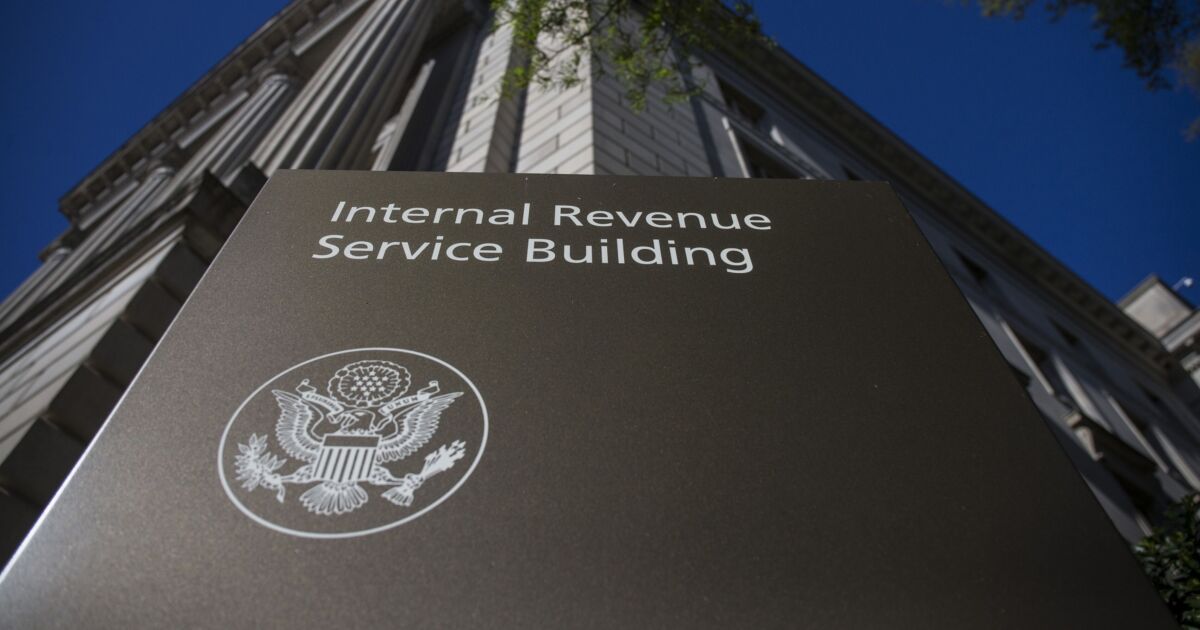More than 11,400 Internal Revenue Service employees have either received termination notices as probationary employees or voluntarily resigned, representing an 11% reduction to the agency’s workforce, according to a report released Monday by the Treasury Inspector General for Tax Administration.
In February, the IRS had around 103,000 employees, but that number has dropped by about 11% due to a series of executive orders from President Trump since his inauguration in January and the downsizing instigated by the Elon Musk-led Department of Government Efficiency, also known as the U.S. DOGE Service. Specifically, 7,315 probationary employees received termination notices, according to the report, and 4,128 employees were approved to accept the Deferred Resignation Program, a voluntary buyout program offered by the Trump administration, which has been rolled out in phases to IRS employees amid court challenges and appeals. Another 522 employees are pending approval under the program.
Monday’s report was TIGTA’s first on IRS workforce reductions and it focuses on the probationary employees identified for termination and the employees who voluntarily participated in the initial Deferred Resignation Program. TIGTA plans to periodically update the report to highlight further reductions, including the impacts of the second Deferred Resignation Program and Reductions in Force. The DRP allowed federal employees to voluntarily resign with pay through Sept. 30, 2025.
In conjunction with the reduction in force, the IRS is offering three voluntary separation programs: the Treasury Deferred Resignation Program will mirror the benefits of the first DRP offering; the Voluntary Separation Incentive Payment; and the Voluntary Early Retirement Authority. In April, the IRS extended the TDRP offer to its employees. According to the IRS, over 23,000 employees have applied for the TDRP, and 13,124 were approved as of April 22.
The report includes a look at the IRS business units affected by the layoffs and voluntary departures. The separations disproportionately impacted employees in certain positions. For example, approximately 31% of revenue agents left the IRS under the program, while 5% of information technology management departed. Revenue agents conduct examinations and audits by reviewing the financial records of individuals and businesses to verify what is reported, and they can work in several IRS business units examining different types of taxpayers.
The Tax-Exempt/Government Entities division lost 31% of its staff, representing 694 employees, while the Large Business and International division lost 25%, or 1,733 employees. The Small Business/Self-Employed division lost 23% of its staff, or 5,765 employees. In contrast, 7% of the Human Capital Office (207 employees), 5% of IT (450 employees) and 4% of taxpayer services (1,714 employees) were affected.
In March, a federal court ruled that the probationary employees needed to be reinstated. The IRS recalled the terminated employees but put them on paid administrative leave. There have since been various court cases challenging the terminations and reinstatements. “Currently, it is unclear what the final disposition will be for probationary employees who received termination notices.”
Most of the 7,315 probationary employees who received termination notices had less than one year experience with the IRS, according to the report, and 6,669 employees had one year of service or less, while 615 employees had between one and five years of service, and 31 employees had more than five years of service.
“The termination of probationary employees will have a greater impact on certain age groups within the IRS workforce,” said the report. The probationary employees who received termination notices tended to be under the age of 40, including 549 probationary employees who were less than 25 years old, representing 14% of all IRS employees in that age group.
Various estimates have been given of the number of IRS employees who will ultimately be affected by the layoffs, ranging from about 20% to 50%. The budget proposal released last week by the Trump administration would cut $2.5 billion from the IRS budget, following on the heels of clawbacks of about half of the $80 billion in extra funding that was supposed to be provided to the IRS under the Inflation Reduction Act of 2022.
Amid all the turmoil this year, the IRS has also seen a number of high-profile departures, including former commissioner Danny Werfel and former acting commissioners Douglas O’Donnell, Melanie Krause and Gary Shapley.
Some former IRS employees and government accountants may be attractive hires by accounting firms and departments that need to fill their ranks amid the ongoing talent shortage.
“We’re certainly seeing more interest in the hiring of former IRS employees and government accountants in conversations we’re having with clients, and this tracks given the current talent shortage in both the finance and accounting fields,” said Kyle Allen, executive vice president of sales and recruiting for Vaco by Highspring, a recruiting and staffing firm. “These folks bring strong regulatory and audit experience to the table, and their insider knowledge of tax compliance is a big plus for private companies. They can often jump into roles like compliance or advisory work quickly, which is a huge benefit. It’s not a silver bullet for the talent gap, but having more qualified professionals in the mix is definitely a step in the right direction.”


 Economics1 week ago
Economics1 week ago
 Economics1 week ago
Economics1 week ago
 Blog Post6 days ago
Blog Post6 days ago
 Accounting1 week ago
Accounting1 week ago
 Personal Finance1 week ago
Personal Finance1 week ago
 Economics7 days ago
Economics7 days ago
 Personal Finance1 week ago
Personal Finance1 week ago
 Accounting1 week ago
Accounting1 week ago












